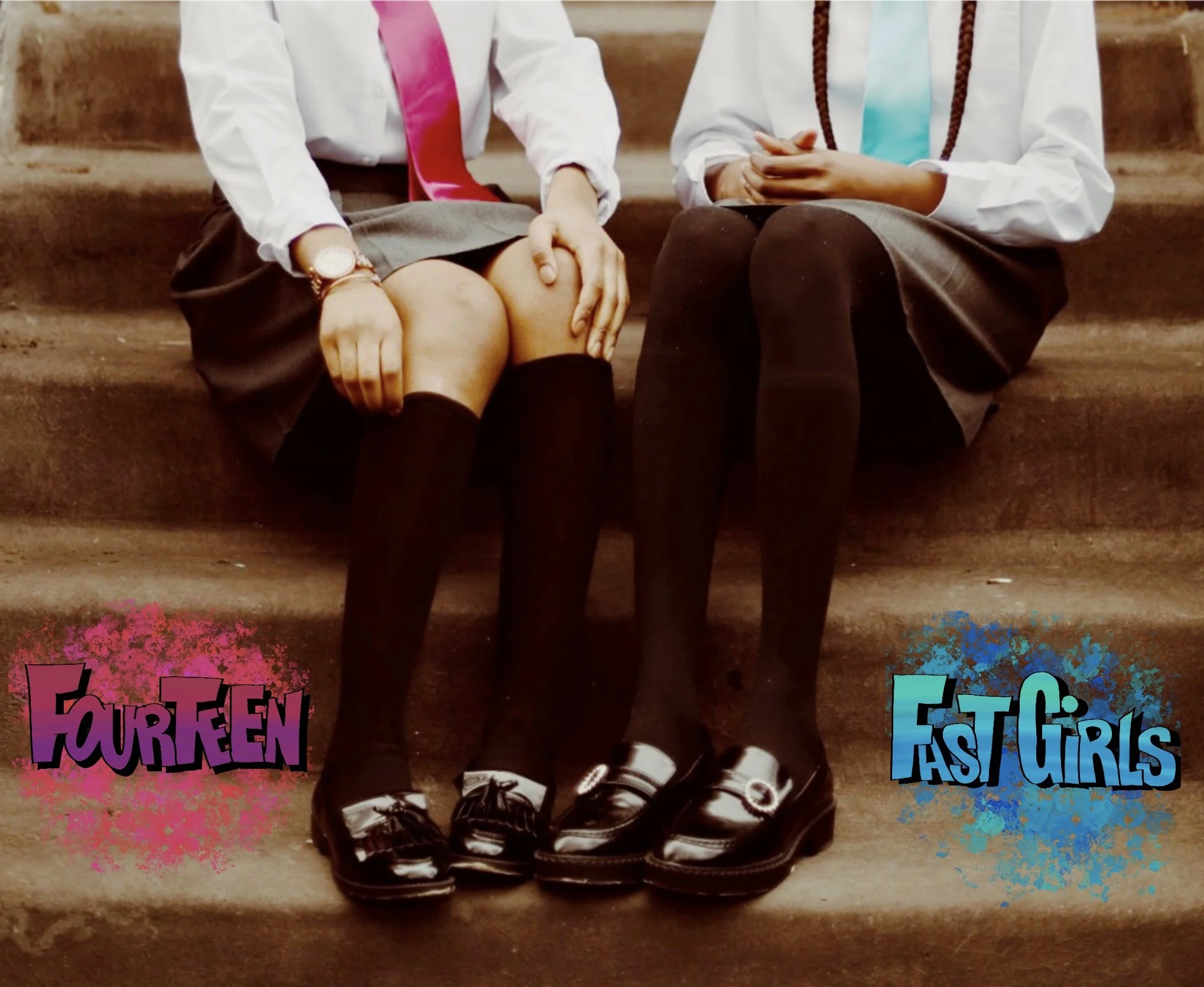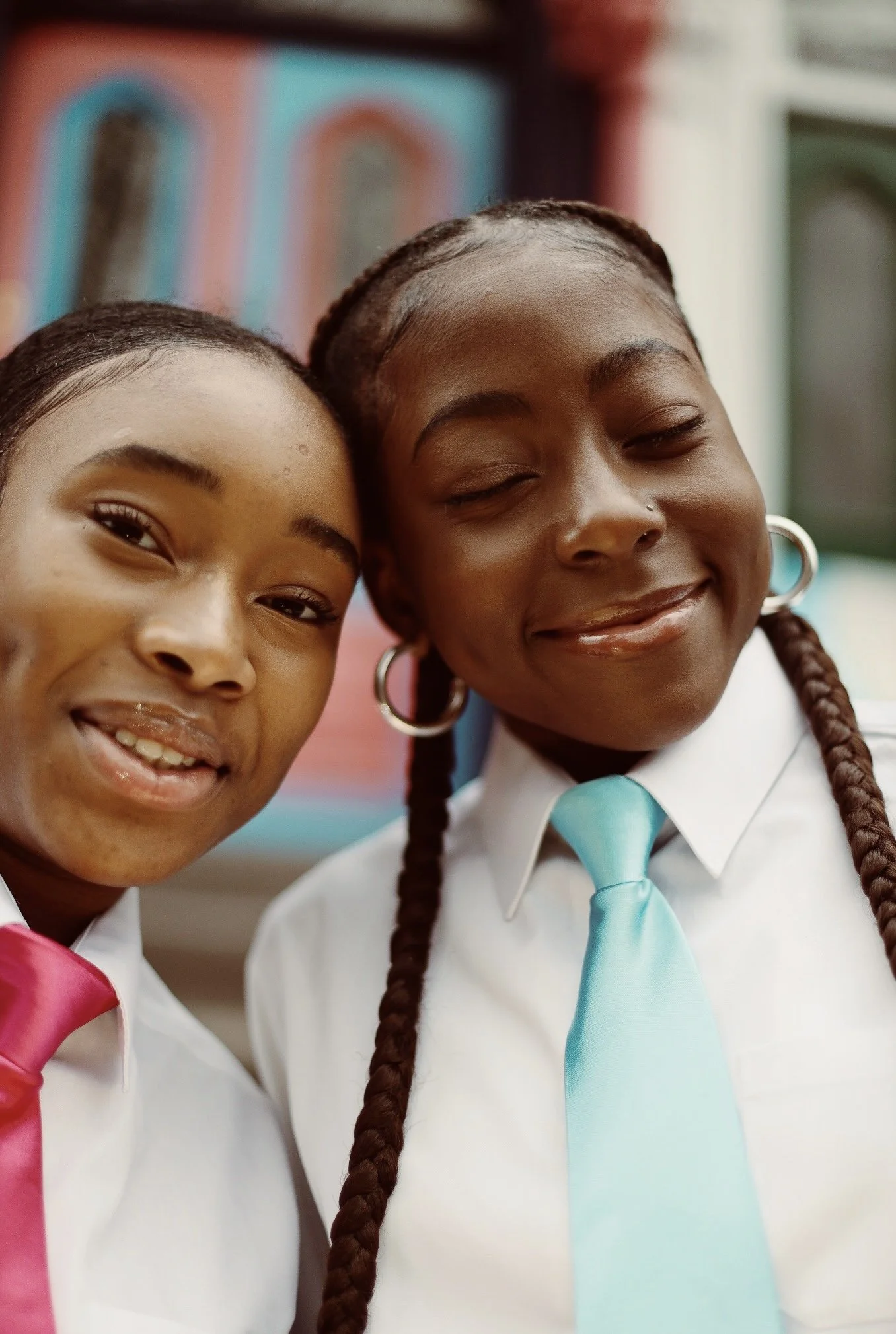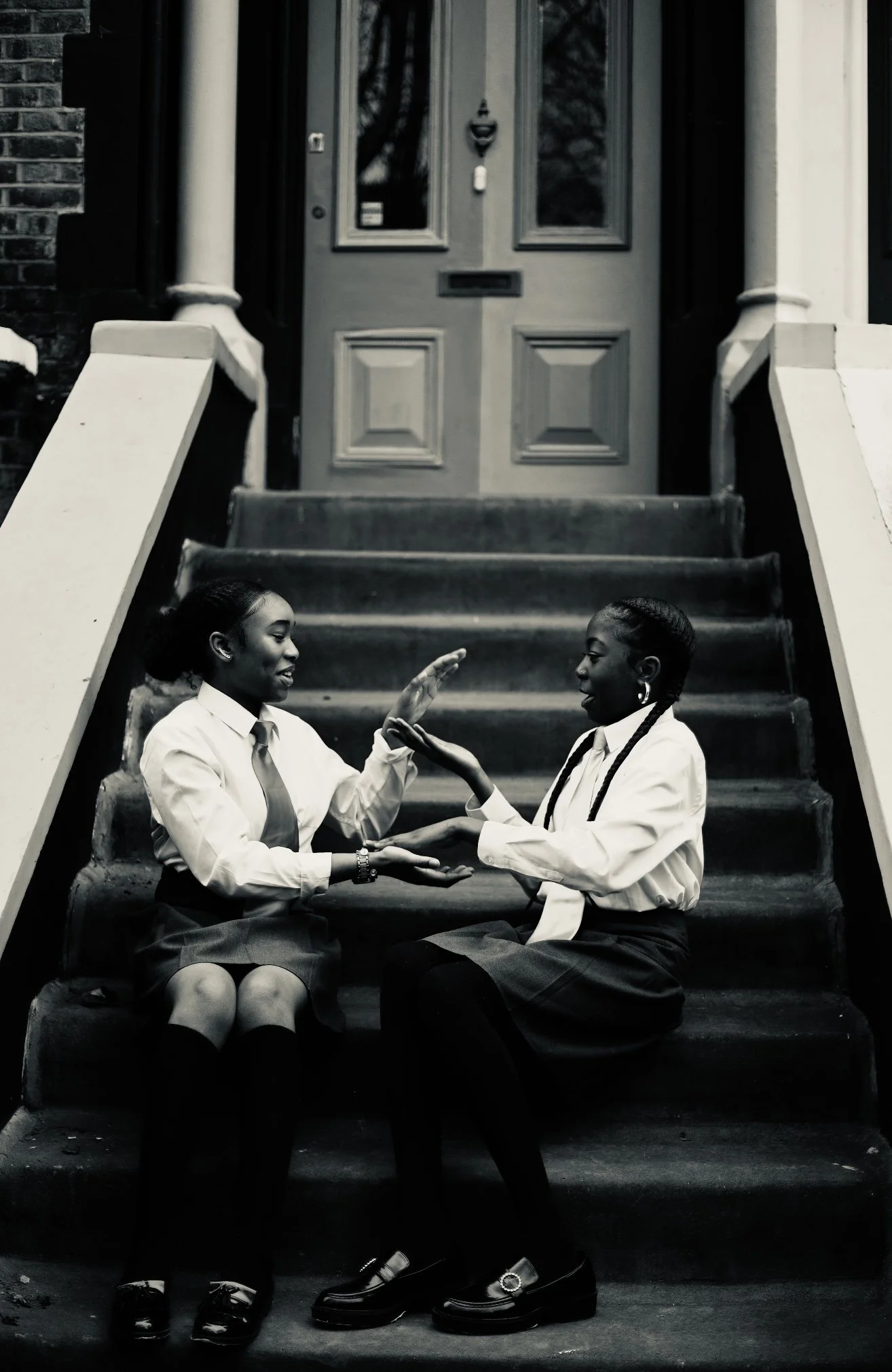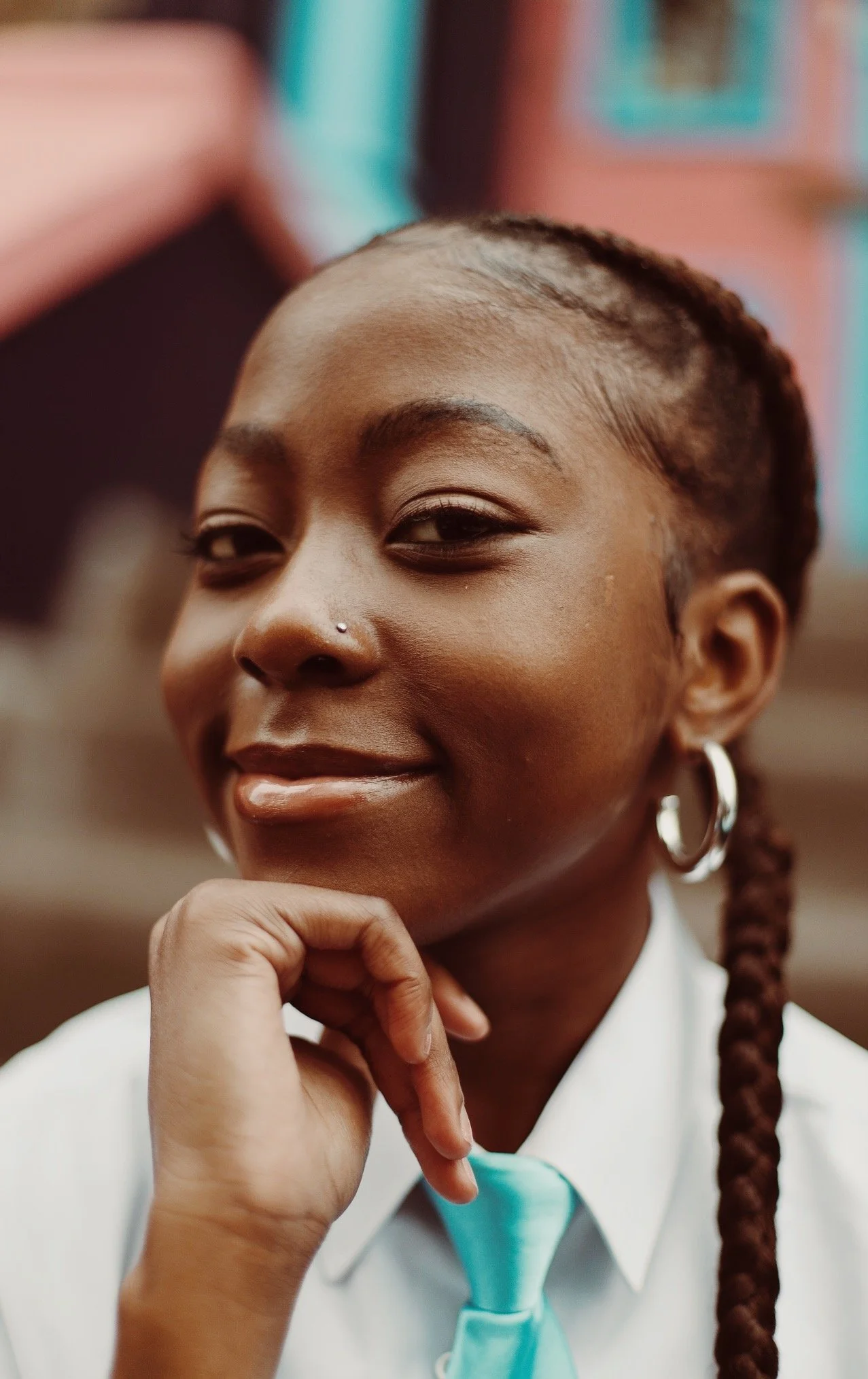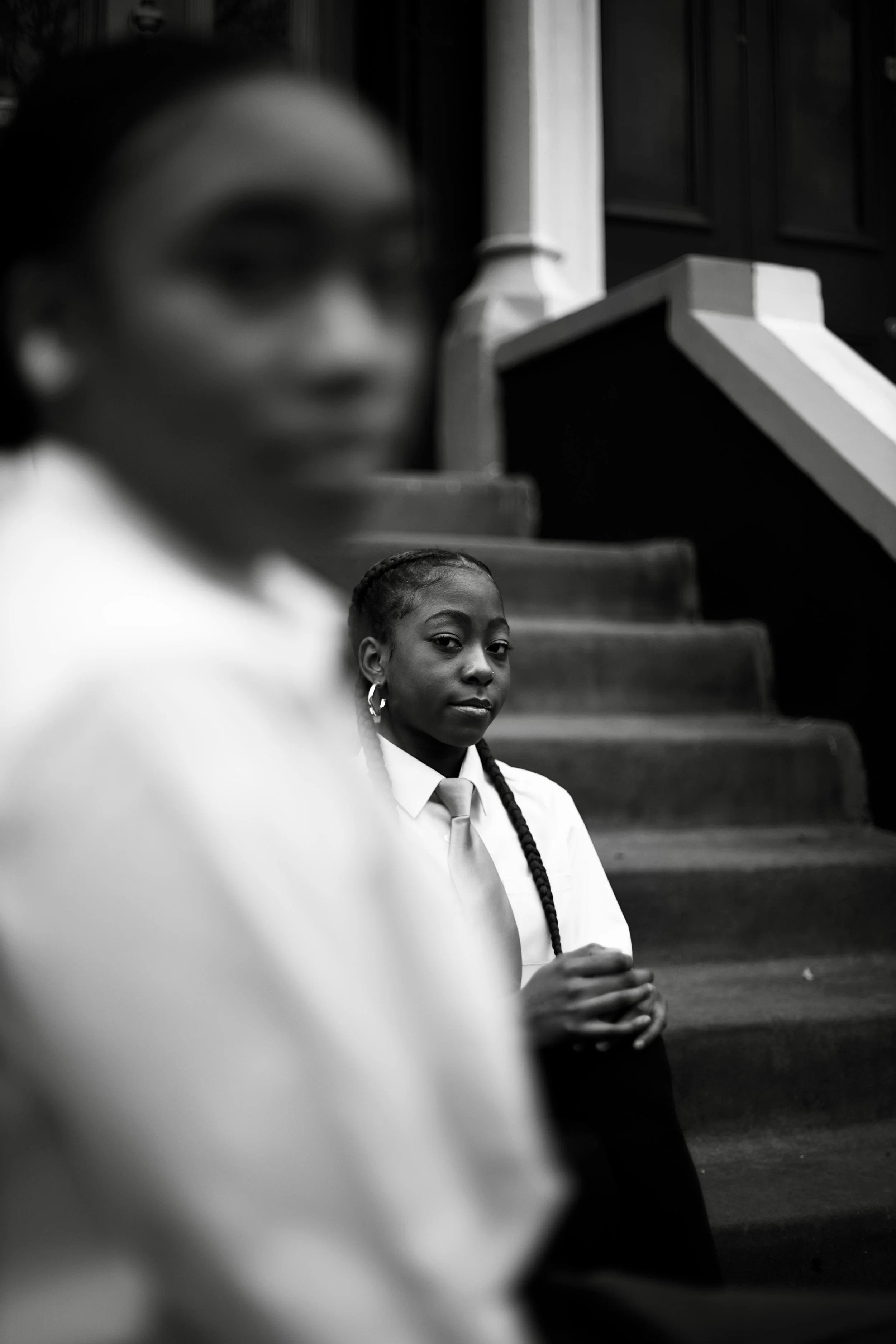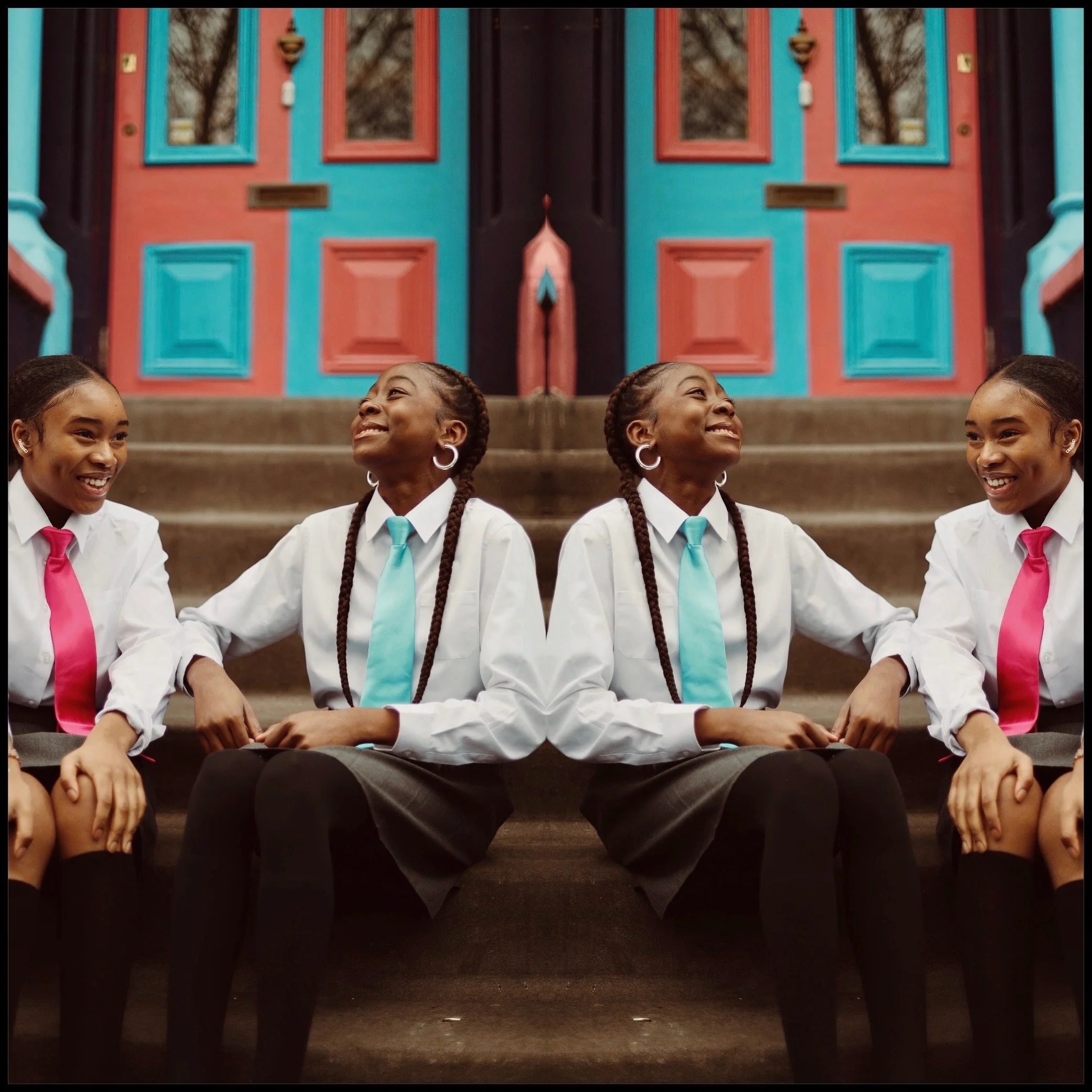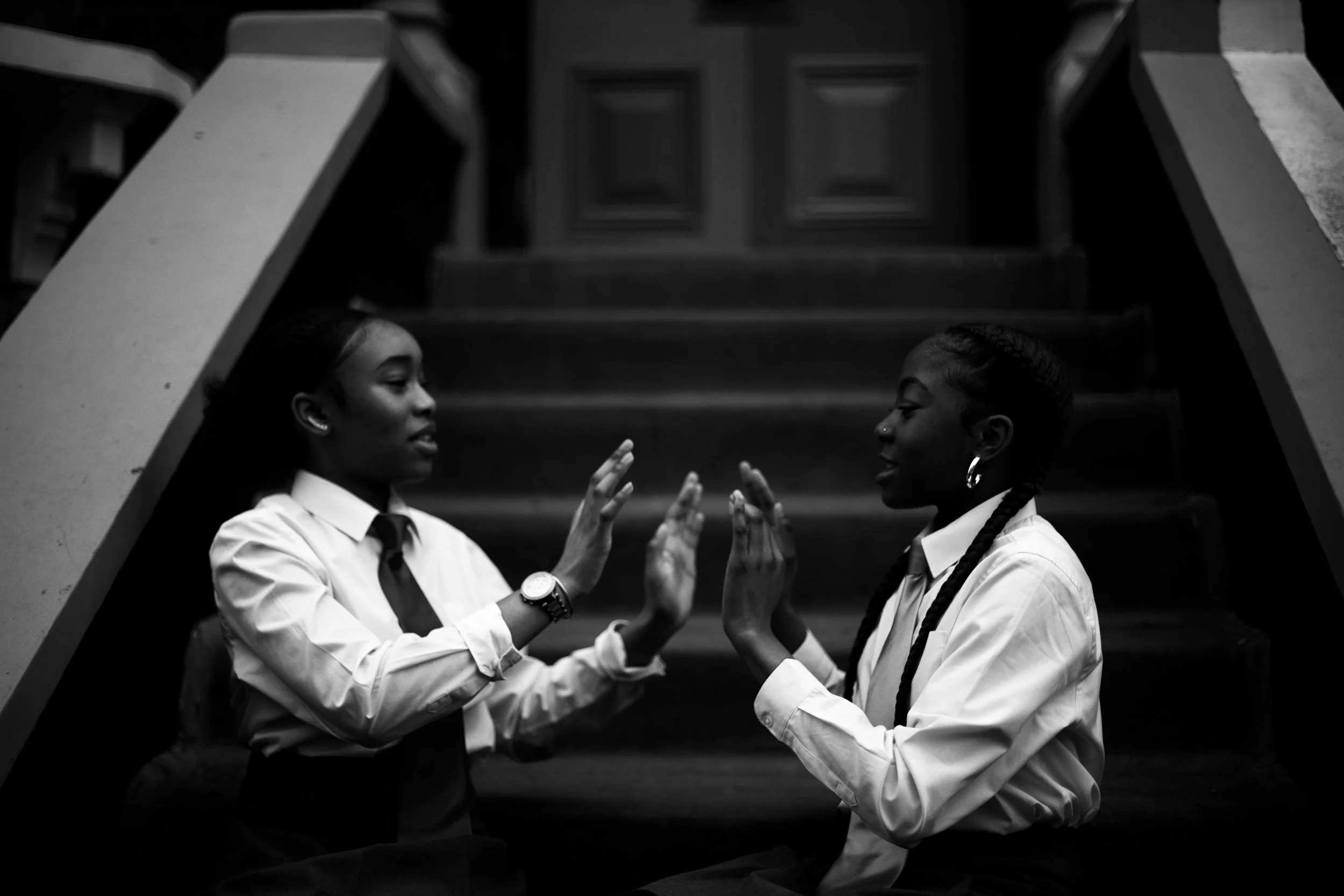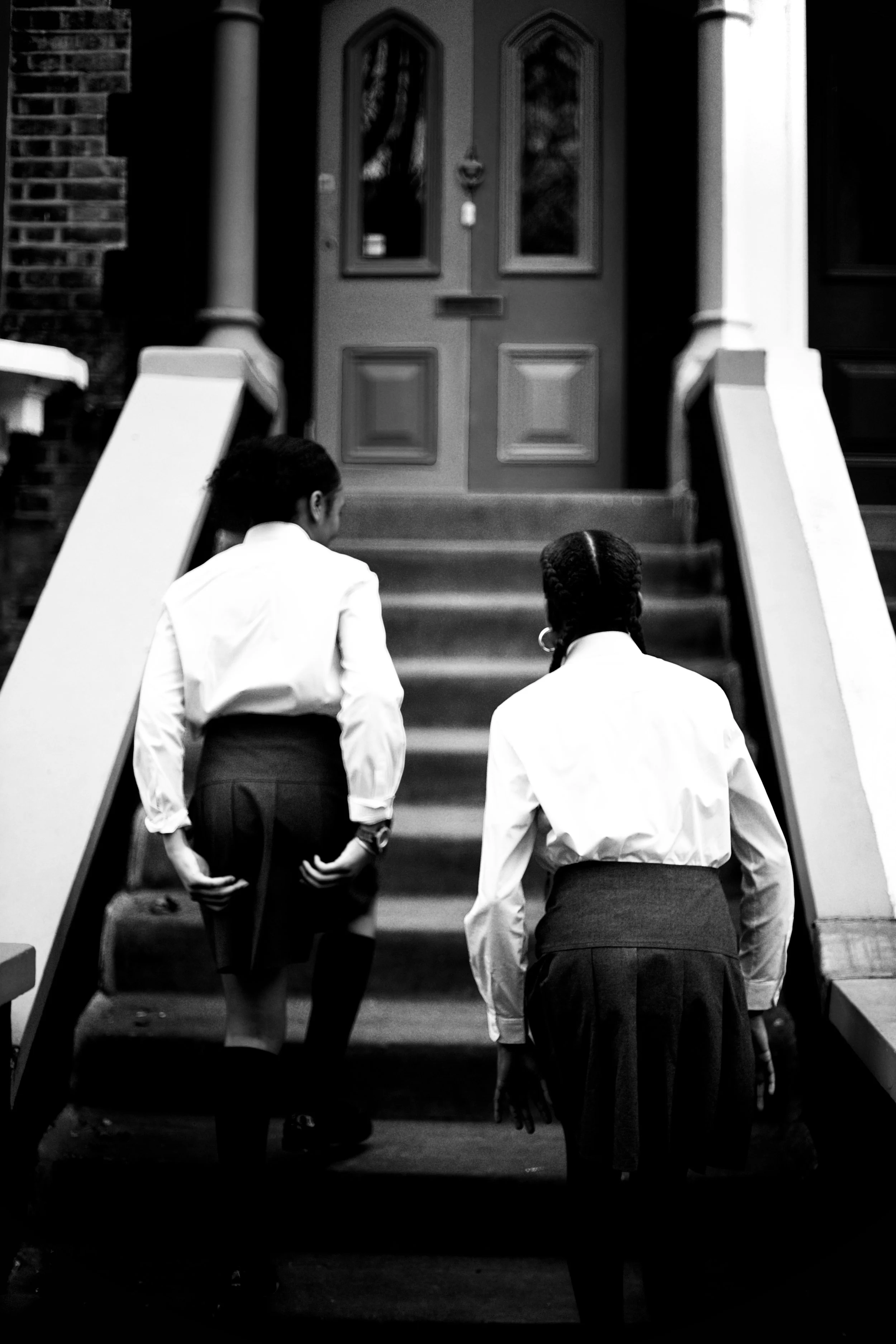‘FOURTEEN’ photo essay.
Dolce far niente, the sweetness of doing nothing -shoulders lowered, relaxed smiles, no grimace in sight, I long for a world where young black girls can feel comfortable enough to simply exist….
“Fourteen” is a visual exploration of the bittersweet human experiences of black girlhood in the UK. I wanted to explore the adultification of working class girls in London, their ability to hold on to their youths and navigate the ever changing and inconstant pressures of the world around them. ‘Fourteen” can be seen as a memory-like visual diary, from images that pay homage to the innocent moments of teenagehood, perhaps the simpler times as we see images of teenagers playing and enjoying the softness of friendships, connection, self expression and beauty in mundanity.
To bring the project to life I collaborated with some teenagers in London under the supervision of their siblings/parents. I also collaborated with some of the youths from “Milk honey bees”, an organisation founded by Ebinehita Iyere in 2017 which offers a safe space for young black girls through 1:1 sessions and creative group projects. It was important to me to not only tell my own story through these images but to amplify the voices and experiences of young black girls today- it was interesting seeing how similar our experiences were.
The concept for this project came to mind upon reflecting on my teenagehood after completing 3 months of CBT therapy for severe anxiety and OCD. I reflected on what it was like being a teenager, living in hackney and coming from a working class background. Although I was deeply impressed by my ability to push through and excel, it came with a bittersweet feeling as I couldn't ignore the way in which success and excellence felt like a desperate need for me from a young age. When I was fourteen I started to think and feel that I needed to be highly successful to be seen, respected, loved, protected and valued and most importantly to survive. After much self development and healing work I am grateful to have found the balance in being passionate and ambitious but knowing that I'm worthy even in moments of stillness and inaction.
“Coming from a working class family made me stronger….growing up was hard but it helped me build up my perseverance..but now I understand that I can be soft and strong on any day I chose” Mckyala, 14 (Milk honey bees)
Growing up poor and the traumas which accompanied it was one of the main reasons I grew up way too fast, it aged me as it mentally and physically ages many young girls and boys trapped in it, for a lot of working class teenagers growing up means experiencing poverty triggered anxiety, loneliness, shame, stress induced anemia, overachieving to compensate, taking up parent based tasks (looking after siblings, managing the households)- its having to grow up and step up too early to enjoy the beauty of your youth..
It’s crucial to highlight what groups of people in the UK are deeply affected by poverty with research showing that more than half of black children in the UK are growing up in poverty with percentage in poverty having increased by more than 10% between 2010 to 2020, with such data one would expect the government to perhaps strategically and intentionally cater to young children affected by it, by going a step further beyond the financial support provided to these families and catering to their mental and physical well being and healing. In a society that lacks thorough care for poorer people, black girls sit at the underbelly- unseen, forgotten, erased.
There simply isn’t enough sociological and psychological research studies around the human experiences of young black girls in the UK and there aren’t enough government funding/ schemes catered specifically to the healing of young black girls from traumas (not only poverty rooted trauma) , hence why I am so grateful for organisations such as “milk honey bees” “girls like us” “the 4 front project” who fight to restore hope, rebuild and instill lasting confidence in young black girls in the community- I am optimistic that black girls will have a brighter future.
‘“Black women experience micro aggression daily, where do we go to talk about this?…..this community (milk honey bees) is the perfect place for us to be us…a sisterhood gives black women humanity but it also provides a critical space that allows healing and most importantly empowerment.” Yasmin hussein, 18 , (Milk honey bees)
Whilst shooting the project it was interesting speaking to the girls and it seemed that indeed most black girls at one point experienced being told we were “too loud’ or were hyper disciplined because we were perceived as “aggressive” and less “poised'' and “lady like” by teachers- the same narrative black women have been subjected to for generations. As I reflect on the conversations with the girls, I can’t help but imagine how traumatising “Child Qs” experience must have been for her. In a space responsible for her safety and care, she was seen as a physical threat, animalisation is the word that comes to mind as oppose to adultification because surely it is a wild or unfamiliar animal that would make one jump into fight or flight state and react thoughtlessly and irrationally. One would expect a harmless 15year old girl to be dealt with differently…to be received with respect, patience, love and grace. It is fair to say that child Q was handled with an unnecessary sense of urgency rooted in the criminalisation of young black youths. I am hopeful as are the black community for justice to be brought to “child Q” and hopeful for her deep healing and the restoration of her joy and inner confidence.
‘“(Society) doesn’t allow for child-like vulnerability, for softness and stillness. It is why my biggest focus in life is on black girlhood- the liberation, the freedom, the creative potential, the joy and the complexities intertwined. A sharp contradiction to what child Q has been left carrying.” Ebinehita Iyere (founder of milk honey bees)
Lastly, it was important for me to visually encapsulate the spirit of teenagehood, e.g teenagers hanging out with each other safely outdoors. I wanted to capture their innocence and I wanted the girls themselves to be reminded of their innocence, seperate from systems and spaces that deem them otherwise, I wanted them to find comfort and stillness in those mundane yet precious moments. I couldn’t help but admire the light of love and deep care that beamed between the girls. It was also important for me to highlight the beauty of friendship and connection, presenting friendship as a powerful tool in survival. Black girls share a connection that tends to be rooted in a sense of familiarity and empathy, bridged by a desire to redefine oneself beyond circumstances and one’s own human suffering, a desire in young girls to be happy, to be seen and most importantly to feel a part of a community in a world that systematically others them. As beautifully expressed by American feminist and theorist Bell Hooks “loving friendships provide us with a space to experience the joy of community in a relationship where we learn to process all our issues, to cope with differences and conflicts while staying connected” I am ever grateful for the phenomenon that is Philia love and how it held me in my darkest moments, my fondest memories at 15 was spending time with my group of friends, belly laughing to corny jokes, laughter that lifted my weakened spirit.
‘“friendships with other black girls has saved us because I now have better communication skills with girls. Making friends has also saved me since it betters my health mentally…we have people to find comfort in and relate to as well as spend time and work with each other in Milk Honey Bees & Beyond.” Naomi, 16 & Kaia- Marie, 17.
“Fourteen” is a hope of a dream that already exists- black girls have always and will always be brilliant, worthy, vibrant and beautiful. Although, unprotected, mishandled, displaced by a system that others them, black girls are still here and will always be here. As more communities come into fruition with the well-being, generational healing, amplifying of the voices and injustice against young black girls in mind, the present and the future is hopeful.
(Note: all links/reference links within photoessay.)
